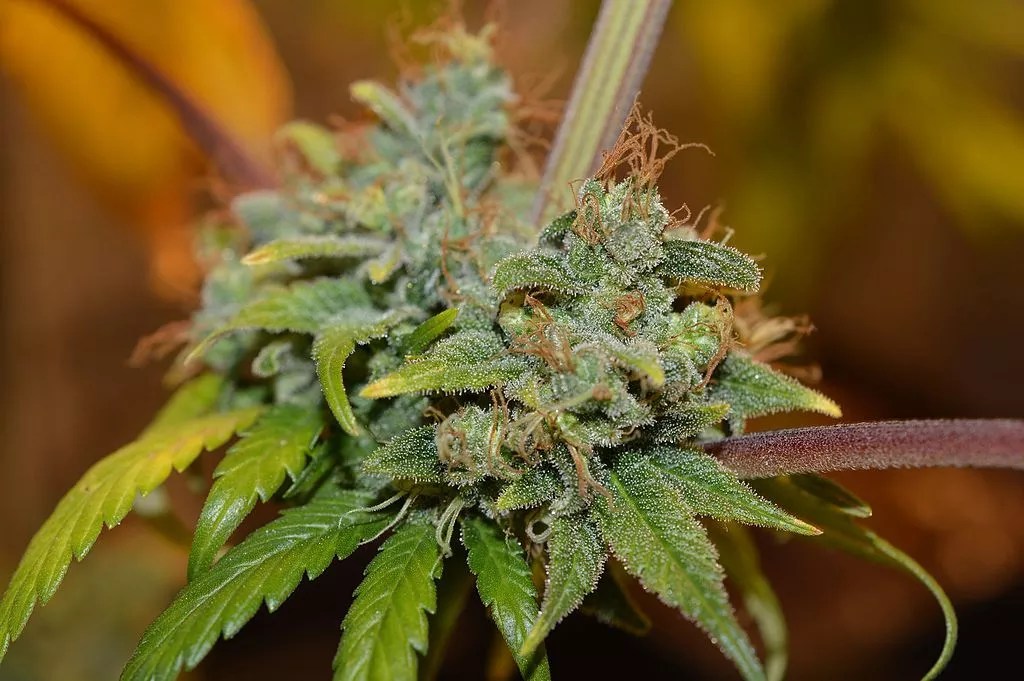
Cannabis Pictures, CC BY 2.0, via Wikimedia Commons

Audio By Carbonatix
The state of Oklahoma isn’t all-in on pot, as it turns out. If you’ve been attempting to keep up with the developments involving cannabis, hemp, synthetic THC and the legality and possible punishments attached to it all here in Texas, you have a good idea of what is going on north of here as well.
Should Texas ever lift its prohibition on recreational cannabis, things are likely to become clearer when it comes to the many seemingly unanswerable questions that pertain to the overall topic of the Lone Star State’s relationship with cannabis.
Oklahoma almost achieved that sort of clarity, but not quite.
Before last night’s special election, there seemed to be a decent shot that recreational cannabis would soon be available only an hour north of D-FW. But the people of the Sooner State spoke and did so rather resoundingly when they voted to reject State Question 820, which would’ve made recreational pot legal for adults 21 and over. The initiative would’ve also created a pathway for individuals to have previous marijuana-related convictions or sentences expunged or modified.
As of Wednesday morning the “No” votes outnumbered the “Yes” votes for SQ820 by more than 130,000, with barely more than 566,000 total votes cast. Oklahoma Gov. Kevin Stitt, a Republican who vigorously opposed the measure, celebrated the result with a statement Tuesday night.
“Oklahomans rejected State Question 820. I believe this is the best thing to keep our kids safe and for our state as a whole,” Stitt’s statement read. “Oklahoma is a law and order state. I remain committed to protecting Oklahomans and my administration will continue to hold bad actors accountable and crack down on illegal marijuana operations in our state.”
Oklahoma is the latest Texas neighbor to pass on making grass completely legal, following Arkansas’ 2022 rejection of a constitutional amendment that would’ve cleared the way for recreational weed. Not all Texans are that far away from a quick edibles run, however. Recreational marijuana has been legal in New Mexico since 2021.
Oklahoma is the latest Texas neighbor to pass on making grass completely legal.
A major difference between pot in Texas and Oklahoma is that our northern neighbors legalized medicinal marijuana in 2018. For any Texas travelers making their way up Interstate 35 or U.S. 75, it’s rather startling to think you’ve entered a green neon-lit pot paradise with dispensaries dotting the highways the moment your tires touch Okie blacktop. Had SQ820 been accepted, it would’ve taken effect in June.
Perhaps it is the wide availability created by the proliferation of medicinal dispensaries throughout the state that led voters to decide that the current level of availability is enough. The New York Times reports there are “some 400 dispensaries in Oklahoma City alone.” As the only choice on the ballot for the special election, it’s also likely that voter turnout wasn’t as robust as it might’ve been had there been other questions to be decided along with it.
Michelle Tilley, campaign director for cannabis legalization advocacy group Yes on 820, released a statement following the vote, suggesting that the group’s fight isn’t over.
“We didn’t get State Question 820 across the finish line tonight,” the statement reads. “But the fact remains that marijuana legalization is not a question of ‘if;’ it is a question of ‘when.'”